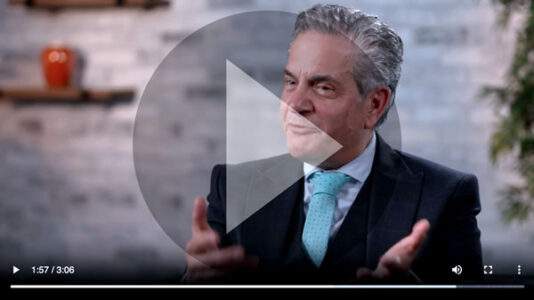The world population is becoming increasingly global and mobile — from immigrants to expatriates to digital nomads who work anywhere with Wi-Fi.
Because I live in Lebanon, a country with a relatively small population base of around 4.5 million (although census numbers vary), the expat population has allowed me to increase the number of clients I can help. There are anywhere from 8 million to 18 million Lebanese living outside of Lebanon, including 6 million Lebanese living in Brazil. So, that means there are more people of Lebanese ancestry living outside of Lebanon than in Lebanon.
Understanding the market
I was born and raised in Orlando, Florida, USA. When I was 27, I moved to Beirut, Lebanon, which was a huge move. So, expats are a client base I understand. I learned that the Lebanese living abroad like dealing with someone in their home country because they may plan to go back there to retire.
There’s always a learning curve when you expand your market though. It’s a different business model, but an interesting one. And it’s one of the best because my clients know that I can serve them no matter where they go in the world.
In my practice, we also serve people in Lebanon of other nationalities. My 1,300 clients come from 15 different nationalities. Part of serving the expat market means working with international insurance companies based in offshore jurisdictions such as the Cayman Islands; the Isle of Man; Hong Kong, China; and Bermuda. Furthermore, it’s crucial to understand different taxation systems and different cultures.
When I need information about the different taxations systems in other countries, I’ll work with other MDRT members, including members who collaborate with tax and accounting firms in the country where I need advice. Many of the jurisdictions where we have clients, though, do not tax expats.
Planning for expats
I have a team of 14 financial advisors and three support staff. Most of our business is life insurance and regular savings type of premium policies. In general, though, expats have the same needs as a person living in their own country. Our plans cater to college and retirement planning as well as income protection. Having said that, there is also a special need that expats have but usually are unaware of.
Since we deal with a lot of C-suite executives, many have stock option plans with their companies and many own assets in the U.S. When these assets are based in the U.S. and the client is not a U.S. citizen, there is an inheritance tax due under IRS Form-706NA whereby the client’s beneficiaries would be liable for up to a 40% tax on any assets over $60,000. We help expats to structure the assets in such a way to legally avoid having the beneficiaries be subject to this tax.
We also assist our clients in holding money in a hard currency, as many of them are uncomfortable holding the currencies of their host countries due to devaluation and possible confiscation.
Finding the market

See more from Fred Belman on this topic in “Expanding your business to expats.”
If you want to work with the expat market and do cross-border planning, you can make connections through expat groups in places such as LinkedIn and Facebook. Furthermore, expats make friends with other expats in their communities. Once they trust you, they start referring you to their expat friends.
I’ve really grown as a financial advisor working with the expat market. We’re all part of a global community. It’s our future.
Fred Belman, of Beirut, Lebanon, is a 16-year MDRT member. He’s also a Top of the Table member.
For more about working with expats and immigrants, read
- “Winning over the overseas skeptic” — How financial advisors can support migrant workers. (Available in nine languages)
- “From here to there” — Watch for these common cross-border financial planning mistakes when advising clients. (Available in eight languages)
- “Securing Hispanic dreams” — Helping fellow immigrants build a secure future in Canada. (Available in seven languages)






Similar Posts
How to succeed and stay a successful financial advisor
Don’t let tough times cancel your clients’ future
The strategy of consistently growing your business by 30%